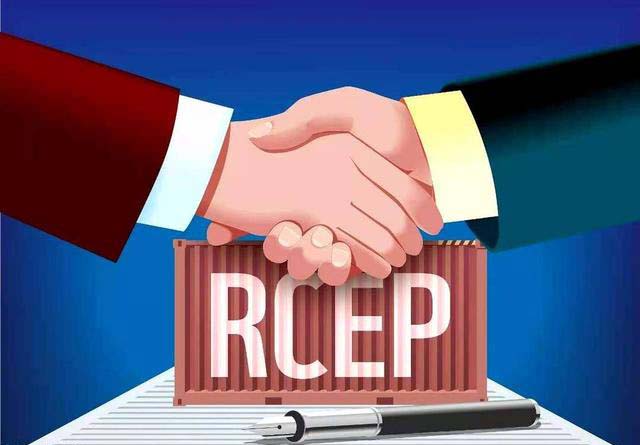On January 1, the "Regional Comprehensive Economic Partnership" (RCEP) officially entered into force in China, Japan, Australia, New Zealand and the six ASEAN countries, and South Korea will also enter into force on February 1, marking the world's largest free trade area. Sailing smoothly. The entry into force of RCEP has created new conditions for deepening China-Japan-Korea economic and trade cooperation. In this specific context, can a breakthrough be achieved in the 10-year-old China-Japan-Korea Free Trade Area negotiations?
With the support of the China-Japan-Korea Cooperation Secretariat, the "China-Japan-Korea Cooperation in the Post-epidemic Era" - the eighth The China-Japan-Korea Cooperation Dialogue was held online and offline on the 17th. More than 50 experts and scholars from China, Japan and South Korea participated in the meeting to discuss how the three parties can cooperate to promote the implementation of RCEP and offer suggestions.
In response to the construction of the China-Japan-Korea Free Trade Zone, Chi Fulin, president of the China (Hainan) Reform and Development Research Institute, suggested that China, Japan and South Korea should seize the opportunity of the official entry into force of the RCEP and strive for breakthroughs. First, the entry into force of RCEP provides important conditions for the construction of the China-Japan-Korea Free Trade Zone. RCEP is not only the first free trade agreement between China and Japan, Japan and South Korea, but also lays an important foundation for the construction of the China-Japan-South Korea Free Trade Zone in terms of tariff concessions, market access, and regional supply chain adjustment. For example, RCEP will enable 86% to 88% of goods between China and Japan to achieve "zero tariffs", and 83% of goods between Japan and South Korea to achieve "zero tariffs". At the same time, RCEP is also the first free trade agreement that China, Japan and South Korea jointly participate in, providing an integrated institutional framework for China, Japan and South Korea's economic and trade cooperation. Based on this framework, China, Japan and South Korea can carry out higher-level economic and trade rules arrangements in the fields of origin, service trade, and e-commerce.
Secondly, China's high-level and institutional opening pattern provides a major benefit for the construction of the China-Japan-Korea Free Trade Zone. First, China promotes high-level opening up focusing on trade in services to expand market space for China-Japan-ROK economic and trade cooperation. With the transformation and upgrading of China's industrial structure and consumption structure and the improvement of the level of opening up of service trade, it is expected that China's service imports will maintain rapid growth after the epidemic, especially services such as travel, medical and health, intellectual property, telecommunications, financial insurance and other services will become the imported focus. Second, China's promotion of institutional opening will provide important conditions for high-level economic and trade cooperation between China, Japan and South Korea. The foundation of institutional openness lies in creating a market-oriented, legalized, and international business environment, paying more attention to institutional arrangements in competition, supervision, intellectual property protection, etc., and realizing the connection between rules, regulations, management, and standards with the international community. In particular, the Chinese government has officially applied to join the CPTPP, and South Korea has also started the process of joining the CPTPP, which will provide important conditions for China, Japan and South Korea to carry out high-level economic and trade cooperation based on RCEP.
Relevant Chinese scholars believe that after the official launch of RCEP, all parties need to further innovate ideas and promote its implementation and implementation, make bilateral and trilateral cooperation more realistic and dynamic, and promote the healthy and stable progress of regional economic integration. developing. In this regard, Hu Zhengyue, vice president of the China Public Diplomacy Association, put forward the following suggestions: First, promote the "10+1" cooperation separately to assist ASEAN countries to resume work and production as soon as possible. China, Japan and South Korea have the ability, and ASEAN has the demand. The continued development of ASEAN is one of the key factors for the success of RCEP. It is in the common interest of China, Japan and the ROK to assist Southeast Asia to revive its development momentum. Second, continue to promote regional economic cooperation. Accelerate the negotiations on the China-Japan-Korea Free Trade Area, further improve the level of free trade, and provide "ballast stone" for the RCEP agreement. The three parties should also actively promote the relevant member states of RCEP to complete the domestic approval process as soon as possible to ensure the full implementation of the agreement as soon as possible. The third is to explore the possibility of cooperation with third countries or relevant regions in combination with the projects listed in the UN 2030 Sustainable Development Process.
Japanese scholars at the meeting believed that the formal implementation and expansion of RCEP need to consider new changes and trends in the world trade structure on the one hand, and further refine the rules and improve the mechanism internally on the other hand. Yukiko Fukagawa, deputy dean of the School of Political Economy at Waseda University, pointed out that the rapid development of the digital economy, especially the rapid development of cross-border e-commerce, the formulation of rules in this regard needs to be further strengthened. Hidejiro Urata, an honorary professor at Waseda University, believes that China, Japan and South Korea's participation in RCEP is a framework arrangement to support ASEAN. The main functions of this bureau or secretariat are, firstly, to collect and disseminate all kinds of information; secondly, to organize and hold various seminars, including seminars attended by government officials and entrepreneurs; thirdly, to evaluate the progress of RCEP.
Korean scholars at the meeting believed that the supply chain issue has always been a special concern of the three parties. The entry into force of the RCEP agreement not only drives down trade and investment barriers between China, Japan and South Korea but also promotes the further integration of manufacturing, industrial chains and supply chains among the three countries through more flexible rules of origin accumulation. Under the RCEP framework, the three parties look forward to building a more resilient and dynamic manufacturing, industrial chain and supply chain. Kim Sung-hwan, chairman of the Korea East Asia Foundation, pointed out that with the entry into force of RCEP, China, Japan and South Korea have ushered in an important opportunity to promote free trade and economic growth, and the key is to implement it well. It is expected that the three parties can further cooperate to build a green supply chain and realize the coordination of supply chain cooperation and environmental protection. Ahn Chung-young, a distinguished professor at the Graduate School of International Relations at Chung-Ang University, believes that China, Japan and South Korea should ensure the supply of the most basic raw materials and ensure the trade flow of materials and components.
In the past two years, the trilateral cooperation between China, Japan and the ROK has suffered some impacts due to the COVID-19 epidemic. However, with the joint efforts of the governments and non-governmental forces of the three countries, the coordination among the three parties has been smooth, the measures have been timely, and the results have been remarkable. At present, based on RCEP, while eliminating interference and enhancing mutual trust, we should promote high-level pragmatic cooperation in specific fields, and release the positive effect of mutual promotion between China, Japan and South Korea's "small multilateral" and RCEP's "large multilateral", which is beneficial to China, Japan and South Korea. , and also has an important impact on regional economic and trade cooperation under the RCEP framework.







































